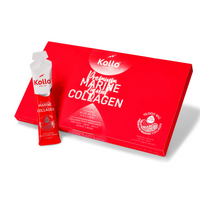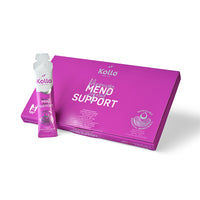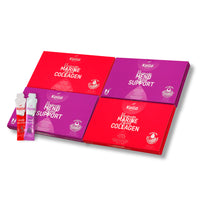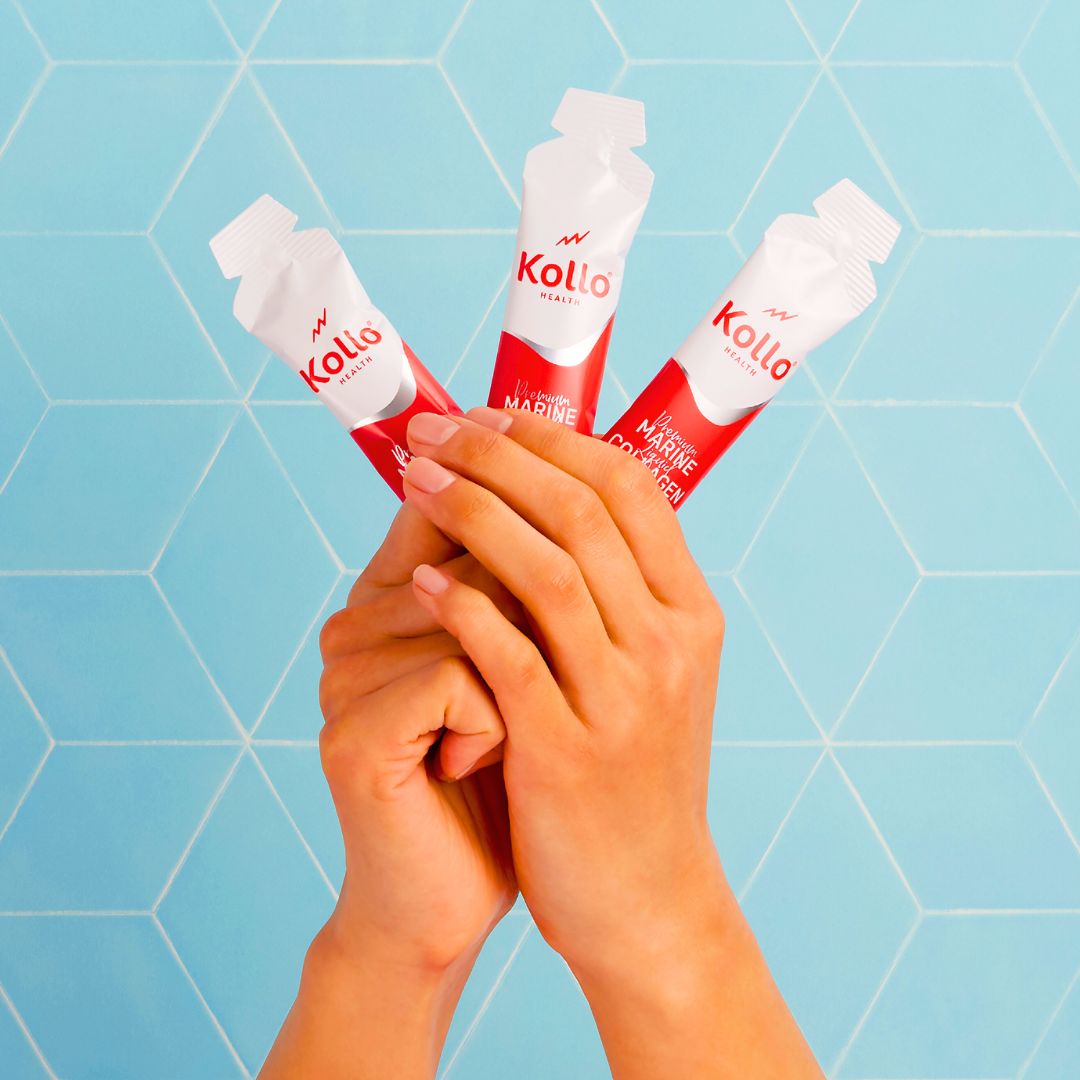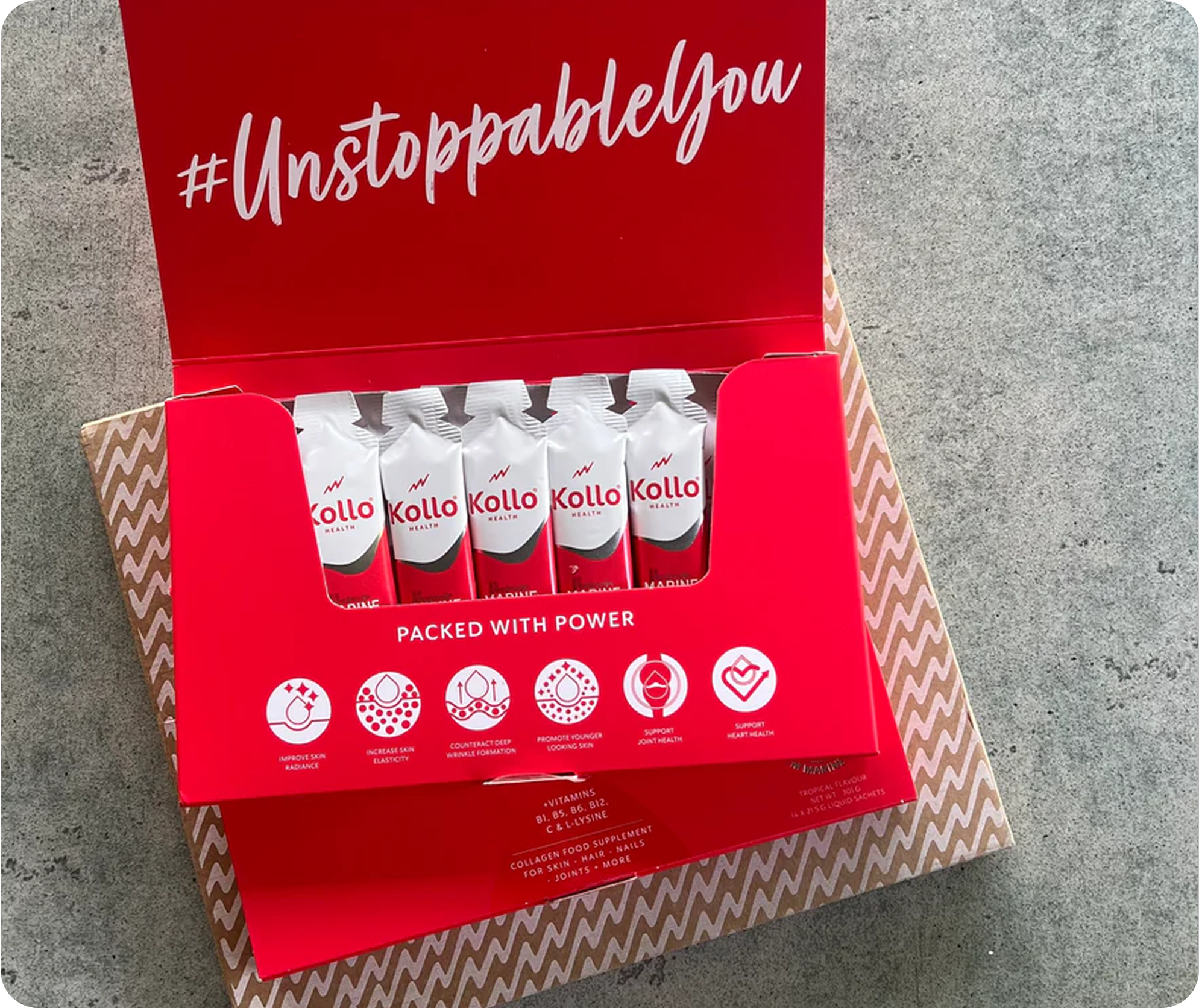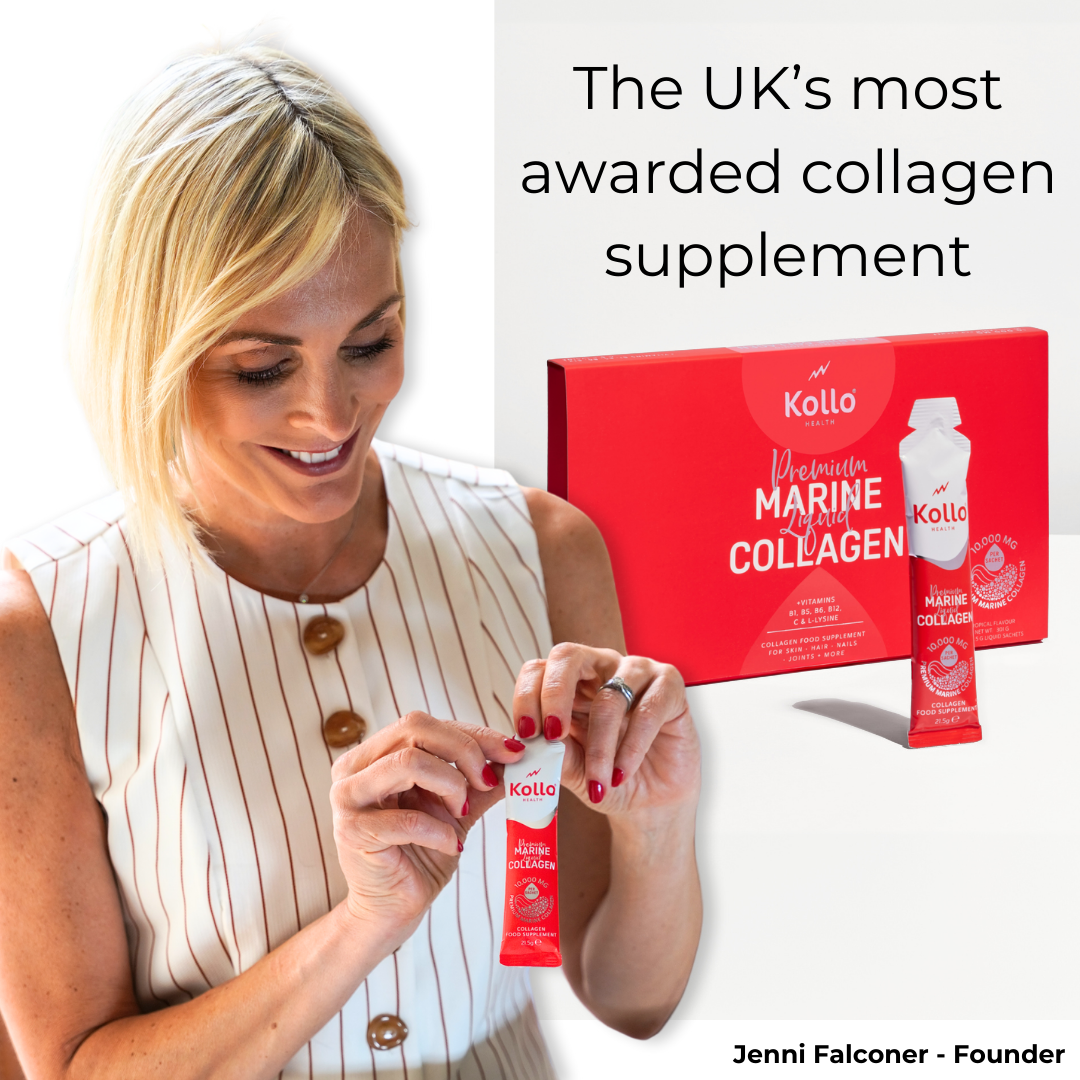Is collagen good for menopause-related bone thinning?

Is collagen good for menopause-related bone thinning?
The prevention of bone loss is very important for women in the journey through menopause and post-menopause. Menopause accelerates bone thinning substantially, increasing the risk of osteoporosis. In fact, as much as 20% of bone loss can happen during and immediately after the menopause, with around 10% of women over 60 affected by osteoporosis. If you develop osteoporosis, your risk of broken bones is substantially increased. This can lead to pain, loss of mobility and function and it is closely associated with a decreased quality of life and increased mortality. So today’s question is this: is collagen good for menopause-related bone thinning?
The link between menopause and osteoporosis
The term ‘osteoporosis’ means ‘porous bones’. It is a progressive condition that weakens the structure of the bones, making them more likely to fracture. The most common cause of osteoporosis is menopause. When hormone levels fluctuate in line with normal menopausal changes, the levels of oestrogen in the body become inconsistent and gradually start to decline.
Oestrogen plays a role in preserving the integrity of bone by slowing its natural breakdown, so its reduction during menopause can make bone thinning accelerate rapidly. Studies have shown that a defining characteristic of osteoporosis is a decline in collagen levels. Around 80% of healthy bone is composed of collagen, so it is no surprise that a reduction in the levels of collagen in your body can lead to a loss of bone density.
Why does the menopause increase collagen decline?
Oestrogen plays a key role in maintaining the mechanisms by which collagen is produced in the body. Throughout every stage of menopause, oestrogen levels drop, and this leads to a dramatic loss of collagen as well. Research has indicated that low oestrogen levels cause greater collagen decline than ageing does.
During the first 5 years of the onset of menopause, women can experience a drop of up to 40% of their body’s collagen. After menopause, the rate of decline holds steady at around 2.1% per year. This is the most significant cause of many signs of ageing, including:
• Loss of bone density
• Sagging skin
• The appearance of fine lines and wrinkles
• Joint discomfort
• Thinning hair and nails
Living with osteoporosis
Living with osteoporosis depends on the severity of the condition. Some people experience very little impact on day-to-day life, while others find they have to restrict what they do in terms of household chores and going for walks. It is generally considered to be important to continue exercising as much as possible, but you would need to take greater care when doing things like lifting. You would also want to be more wary of things like trips or falls as bones would be more likely to fracture with increased strain or impact.
If a broken bone does occur, it can take weeks or months to heal (depending on the type/location of the fracture). More complex fractures may need surgery to ensure the bone is set properly, and things like hip and knee replacements are not uncommon for fractures in the elderly. If a fracture occurs in the spine, it can cause a loss of height and may render the spine unable to support your weight. This can cause the back to become hunched and may lead to long-term pain.
The other risk of fractures is that they make you less able, both in the short and long term, which can cause other health concerns relating to a more sedentary lifestyle. Being less mobile and getting less exercise can lead to weight gain, an increase in cholesterol and even issues with mental health. None of this is something you want to happen, so you may want to take steps to reduce your risk of developing osteoporosis in the first place.
Is collagen good for menopause symptoms?
While it can’t reverse the decline in oestrogen levels due to menopause, collagen can help fight back against some of the consequences of that decline. In this instance, we are talking about collagen supplements like Kollo. As previously mentioned, the drop in oestrogen can directly lead to a spike in the decrease of your collagen levels, which leads to those early signs of ageing including bone loss. By taking collagen supplements, you can trigger and fuel more sustained collagen production to undo much of that collagen decline, thus limiting the signs of ageing.
Collagen supplements are based on collagen peptides; chains of amino acids that come from breaking down animal collagen via a process called hydrolysis. Breaking them down makes it very easy for our bodies to absorb those amino acids, and collagen molecules are packed with certain amino acids that are essential for collagen synthesis. They are abundant in glycine, proline and hydroxyproline, supplying this all-important collagen fuel so that your body can get to work undoing the decline brought about by a combination of age and menopause.
What are the benefits of collagen supplements?
In the context of this article, the primary benefit is that they can help maintain the collagen levels in your bones. Collagen is vital for the formation of strong, supple bone tissue. The bioactive collagen peptides from a high-quality collagen supplement have been clinically shown to help form bone matrix, which is the tissue that provides tensile strength and flexibility in the bones. There, it helps to create osteoblasts, which are the bone building cells, and reduce osteoclasts, which are the bone breakdown cells. In a nutshell, by boosting your body’s collagen levels and fighting back against the menopause-related decline, you will make your bones healthier and stronger.
Other benefits of collagen supplements include:
• Restoring elasticity and hydration to your skin
• Reducing the appearance of fine lines and wrinkles
• Fighting inflammation in the joints and restoring suppleness and resilience
• Adding strength, volume and lustre to your hair and nails
• Boosting the health of your gut
• Strengthening arterial walls
• Bringing vigour to your energy levels and promoting high-quality sleep
How does Kollo compare to other collagen supplements?
Each daily Kollo sachet contains 10 grams of premium marine collagen peptides. Marine collagen is exclusively type I collagen, which is the primary collagen type found in bone tissue. This means that the nutrients you get from Kollo are primed to trigger and sustain the creation of collagen that is optimised for your bones. The active ingredients of our supplements are highly bioavailable, fortified with B vitamins, vitamin C and l-lysine to help support your body’s efficient production of new collagen so that the benefits are accessed as quickly as possible.
We also suspend our nutrients in a liquid formula as opposed to a powder or a tablet. There are several reasons for this:
A consistent dosage
The 10 grams of marine collagen peptides in every Kollo sachet are important. We didn’t arrive at that number at random – we followed the science and found that 10 grams per day is the optimal dosage to experience the full range of benefits, including those relating to bone density. Supplements in tablet form are not able to fit such a high dosage into a single pill, so users commonly have to swallow as many as 4 pills per day to get that amount, and powders are notorious for not providing a consistent distribution of the ingredients in every scoop. We chose liquid because it gives us full control over your daily dosage.
Maximum bioavailability
You want your body to be able to access the nutrients in your supplement quickly and easily. If it has to break down solids like powder or tablets, this puts more strain on your gut and delays the absorption into your bloodstream – two things that we decided really weren’t necessary when a liquid formula is available.
Ease of use
With Kollo, you simply empty the sachet into water, stir it and drink. What could be easier than that? To incorporate a new habit into your daily routine, it needs to be easy to do. With something as important as protecting against osteoporosis, why make it any harder than it needs to be?
How long does it take for Kollo to restore bone density?
When you start your 10 grams per day of premium collagen peptides, they can start to address weaknesses in your bones in a matter of weeks. However, studies have shown that it takes around 12 months to experience meaningful restoration of bone density, so it is wise to start as early as possible to minimise the thinning of your bones during menopause.
It is also important to maintain a healthy diet and get plenty of calcium and vitamin D to support bone health.
The bottom line
So, is collagen good for menopause-related bone thinning? Absolutely!
We encourage you to do more research into the topic – there is a wealth of information about it on our website. But don’t delay in starting your collagen supplement, particularly if you are experiencing the early signs of menopause. You don’t need to simply accept any negative changes in your body as a result of menopause – life goes on, and there are lots of things you can do to maintain maximum quality of it through menopause and beyond!
If you have any questions about Kollo that you can’t find answers to on our website, please contact us and speak to a member of our team.
